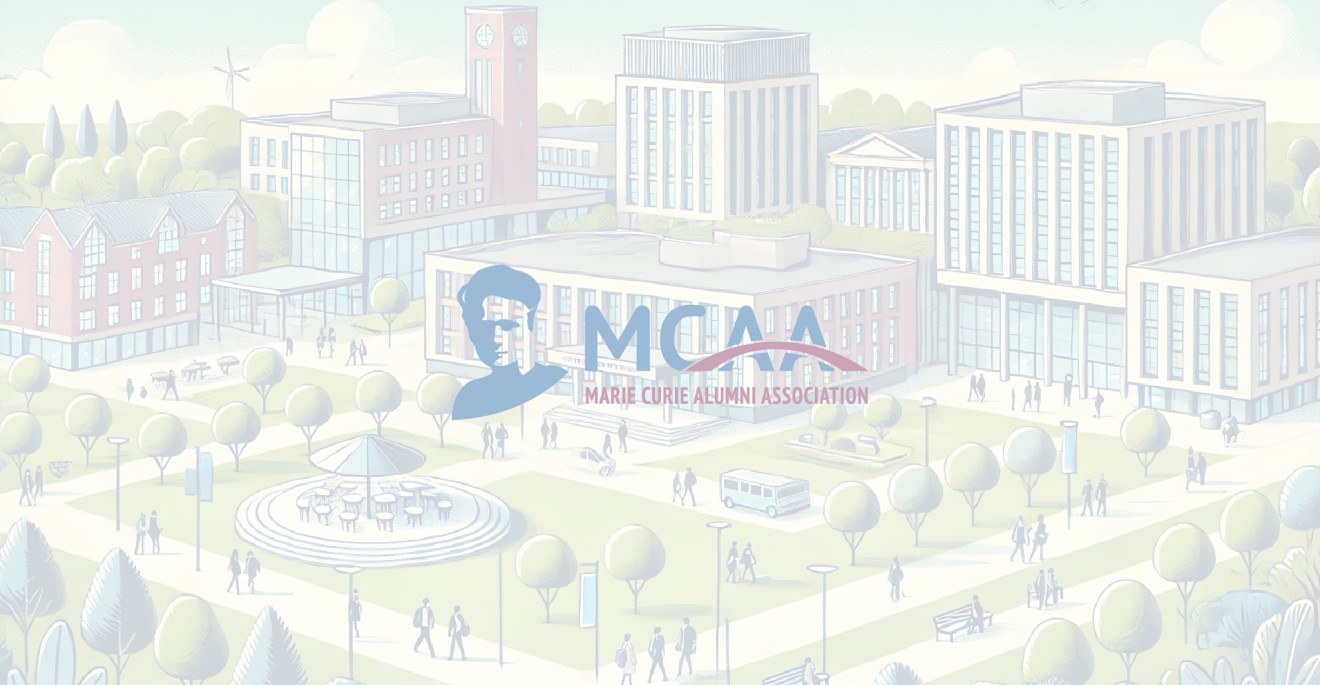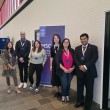CALL FOR PAPERS! Special Issue - "Universities’ Contributions to Societal Development"

CALL FOR PAPERS: Special Issue on "Universities’ Contributions to Societal Development" at MDPI Social Scoeinces (Open Access)
More information at: https://www.mdpi.com/journal/socsci/special_issues/Universities_Contributions_Societal_Development
Co-edited by:
Dr. Paul Benneworth (MSCA ITN Supervisor) - Western Norway University of Applied Sciences (NO)
Prof. Rune Dahl Fitjar (MSCA ITN Supervisor) - University of Stavanger (NO)
Ms. Liliana Fonseca (MSCA PhD Fellow) - University of Aveiro (PT)
Mr. Sergio Manrique (MSCA PhD Fellow) - Autonomous University of Barcelona (ES)
Ms. Huong T. Nguyen (MSCA PhD Fellow) - Autonomous University of Barcelona (ES)
Dear Colleagues,
There is huge contemporary interest in the contributions that universities can make to knowledge societies. Universities have always been associated with creating societal benefits (Bender, 1988), but it was with the realisation that we are living in a knowledge economy that really initiated current interests in using universities to contribute to societal growth. The first of these new wave studies (cf CERI, 1982) took a very broad view of what constituted universities’ potential contributions, just as Flexner (1930), Dobree (1943) and even Alexander von Humboldt had done historically. But as Popp Berman (2011) traced in her volume the Making of the Market University, these ideas started to expand at precisely the time that America was wrestling with a competitiveness crisis. Facing technological decline against the rapidly emerging Japanese economy, universities became part of a potent transformation of American industry, centred around patenting, new growth industries, spin-off companies and technology-based venture.
America was not the only country wrestling with these competitive challenges and in the late 1980s and 1990s policy-makers’ perspectives became dominated by these economic readings of universities’ societal benefits. With the incorporation of thus view within Europe’s growth agenda for the 2000s, the orthodoxy became established that universities’ dominant contributions came through licensing, technology transfer and business venturing (Benneworth, 2015). Part of the rapid spread of these ideas came with the fact that they were advocated by a powerful lobby, the American Association of University Technology Managers (AUTM). They launched a survey of their members, research intensive US public universities, and developed indicators that became synonymous for a time with impact as well as providing an evidence base for increasingly sophisticated econometric analysis by the research community (Donovan, 2017). And academic literature (Perkmann et al, 2013) became increasingly focused on studying university society impact through this rather narrow, technology-focused and economistic lens.
But there is at the same time a realization that in this rush to generate policy indicators and impact measures, we have lost the essence of the contributions that universities make to their host societies (Ribeiro et al, 2018). We see that an increasing interest in responsible research and innovation (Stilgoe et al, 2013) reflecting a sense that technological progress is insufficient for society. As well as excluding some disciplines either partially or entirely, these economic approaches miss the myriad ways in which universities contribute to changing the world by equipping civic society with new ideas, challenging injustice and reflecting on past failures, by creating platforms for silenced voices and supporting the development of better policies and better democracy. Gunasekara (2006) made a useful distinction here between the generative and developmental contributions, highlighting the roles of these developmental contributions in changing the ‘rules of the game’ by which societies operate.
In this special issue, we seek contributions that can generate understanding about the roles that universities (here taken as a shorthand to refer to all higher education institutions) can contribute to stimulating societal development in its broadest sense, in particular relating to their immediate communities. We are primarily interested in contributions that seek to highlight or showcase previously overlooked processes, techniques, methodologies, infrastructures and practices that mobilise university knowledge for the benefit of society. Although we would not exclude papers covering orthodox approaches to technology transfer we expect that the majority of papers accepted would take a more heterodox view on university societal contributions, potentially but not limited to topics such as:
- Strategic approaches (strategic management, policy, governance) by university policy makers to maximizing university societal contribution
- University contributions to societal development in a long-term perspective
- Universities’ contributions to social innovation, entrepreneurship and enterprise
- Universities’ contributions to civil society through Quadruple Helix partnerships
- Universities contribution to strategies and policies for local/ regional development
- Universities efforts to make knowledge available to non-traditional communities
- Universities’ contributions to responsible research and innovation processes
- Universities’ contributions to addressing hermeneutic and testimonial injustice
- Examples of societal impact from non-traditional disciplines (social sciences and humanities)
- Assessing universities’ societal contributions: indicators, performance measures & peer review methods for university-societal engagement
- Innovative methodologies to stimulate university-society engagement, such as living labs, hackathons, , datalabs, open data, sandpits, and
- Innovative philanthropy and social responsibility creating societal impacts (e.g. social foundations, community kitchens).
Bibliography
- Bender, T. (1988) (ed.), The University and the City. From Medieval Origins to the Present. New York/Oxford: Oxford University Press.
- Benneworth, P. (2015) “Tracing how arts and humanities research translates, circulates and consolidates in society. How have scholars been reacting to diverse impact and public value agendas?” Arts and Humanities in Higher Education Vol 14, Issue 1, pp. 45 - 60 doi:10.1177/1474022214533888
- Centre for Educational research and innovation (1982) The university and the community: the problems of changing relationships, Paris: OECD
- Dobrée, B. (1943) “The universities and regional life” Twenty-fifth Earl Grey Memorial Lecture, Newcastle-upon-Tyne, King’s College, 29th April 1943.
- Donovan, C. (2017) “For ethical ‘impactology’” Journal of Responsible Innovation pp. 1‑6 published in advance https://doi.org/10.1080/23299460.2017.1300756
- Flexner, A. (1930) Universities: American, British, German, Oxford: Oxford University Press
- Gunasekara, C. (2006) Universities and associative regional governance: Australian evidence in non-core metropolitan regions. Regional Studies 40(7):pp. 727-741.
- Perkmann, M., Tartari, V., McKelvey, M., Autio, E., Broström, A., D’Este, P., Fini, R., Geuna, A., Grimaldi, R., Hughes, A., & Krabel, S. (2013). Academic engagement and commercialisation: A review of the literature on university–industry relations. Research policy, 42(2), 423-442.
- Popp Berman, E. (2011) Creating the market university: how academic science became an economic engine, Princeton: Princeton University Press.
- Ribeiro, B., Bengtsson, L., Benneworth, P., Bührer, S., Castro-Martínez, E., Hansen, M., Jarmai, K., Lindner, R., Olmos-Peñuela, J., Ott, C., Shapira, P. (2018) “Introducing the dilemma of societal alignment for inclusive and responsible research and innovation“ Journal of Responsible Innovation, https://doi.org/10.1080/23299460.2018.1495033.
- Stilgoe, J., Owen, R. and Macnaghten, P. (2013): Developing a Framework for Responsible Innovation. Research Policy 42(9): 1568-1580.
Submit at: https://susy.mdpi.com/


